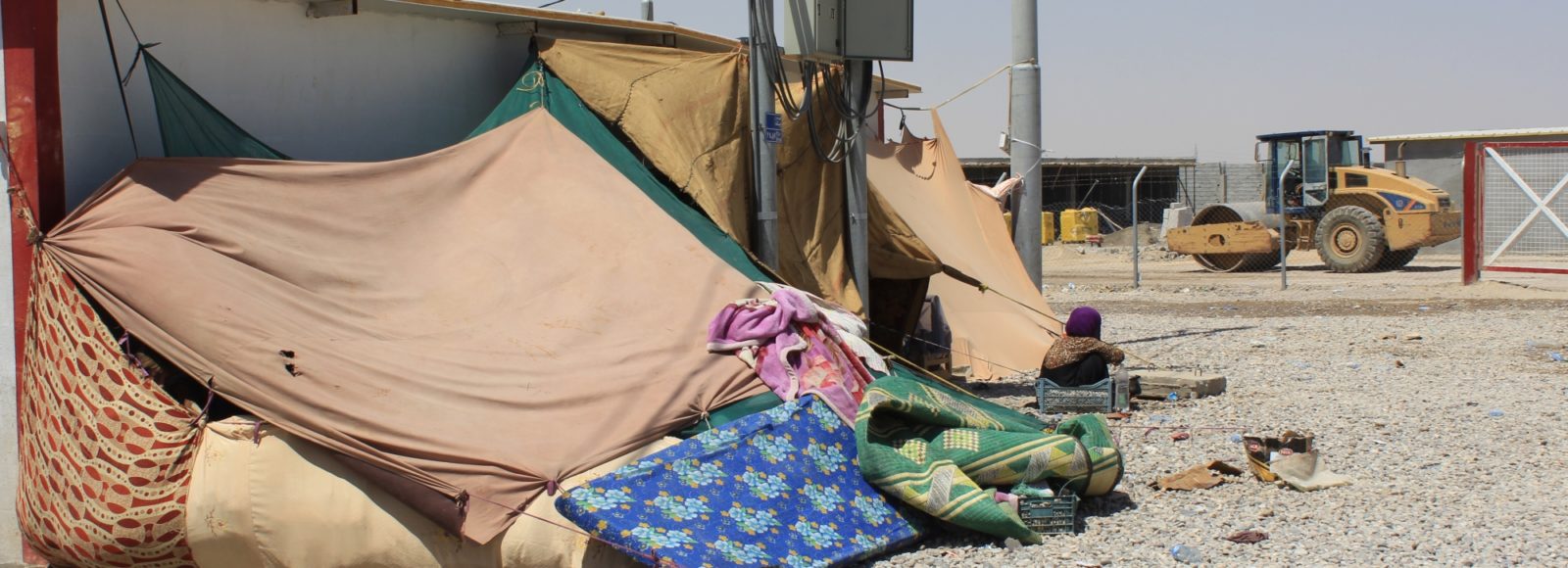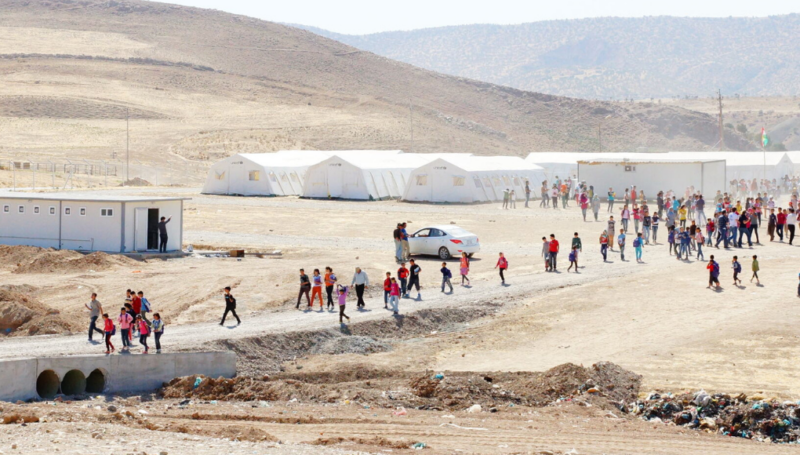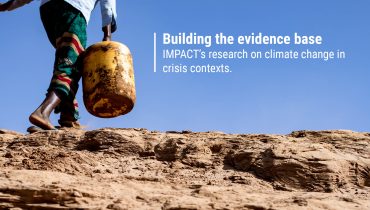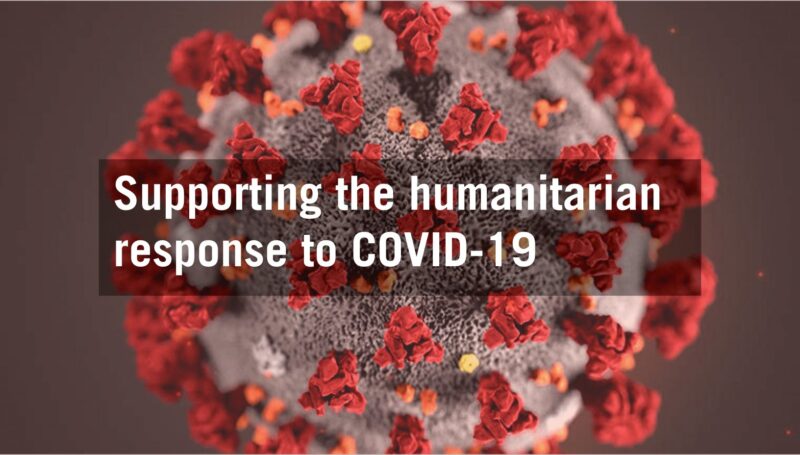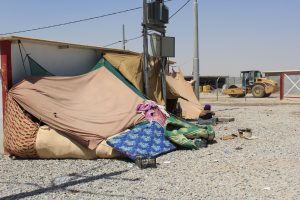 Since the capture of Mosul in 2014 by armed groups, estimates show that more than one million civilians have remained in the city, with limited access to food, basic services and humanitarian assistance. Between 17 October – 25 November, conflict in the villages surrounding Mosul and inside Mosul city has led to the displacement of 11,906 families (71,436 individuals) to areas predominantly to the East and South East of Mosul city (IOM, 25 November). There is also a significant caseload of conflict-affected citizens who have chosen, and may choose in the future, to remain in their homes while direct conflict is ongoing in their village or neighbourhoods.
Since the capture of Mosul in 2014 by armed groups, estimates show that more than one million civilians have remained in the city, with limited access to food, basic services and humanitarian assistance. Between 17 October – 25 November, conflict in the villages surrounding Mosul and inside Mosul city has led to the displacement of 11,906 families (71,436 individuals) to areas predominantly to the East and South East of Mosul city (IOM, 25 November). There is also a significant caseload of conflict-affected citizens who have chosen, and may choose in the future, to remain in their homes while direct conflict is ongoing in their village or neighbourhoods.
This Mosul Offensive Crisis Overview is based on successive rapid assessments from REACH published between late October and end November, targeting displacement from Mosul and neighbouring areas to IDP camps: Zelikan and Zelikan round 2; Ibrahim Khalil village – Debaga camp; Qayyarah Jad’ah camp; Khazer MODM 1 camp and round 2; Hasansham UNHCR 3 camp; and an overview of displacement from Eastern Mosul conflict-affected neighbourhoods.
Based on REACH rapid assessment findings, IDPs predominantly reported leaving in two distinct groups: either as whole family units or communities. Additionally, available estimates of demographic data indicate high dependency ratios and therefore heightened vulnerability: 50% of the population consists of minors, with one in five below the age of four (CCCM RASP data). The ability of IDPs to bring cash with them also varied by context: the majority of IDPs in Hasansham 3 and 50% of IDPs in Khazer MODM were reportedly able to bring small amounts of cash. Based on previous REACH assessments, a majority of IDPs could also bring ID papers with them, except for infants under the ages of 2-3 since no birth certificate have been provided in the last two years.
Response to IDP needs also depends on context and locations: in Zelikan and Qayyarah-Jad’ah camps, all new arrivals reported access to Rapid Response Mechanism (RRM) assistance from WFP, hot meals, and one-off shelter/NFI distributions. The same assistance mechanisms are in place in Khazer MODM and Hasansham 3, however the amounts distributed are reportedly not enough to cover the whole camp, and most recent arrivals are reportedly less able to access assistance than before. In Khazer especially, the population is growing by the day: recent arrivals were observed to lack adequate winterization items, including clothing, footwear and shelter/NFI items to cope with the current cold conditions.
REACH intends through these updates to provide timely information in such rapidly changing emergency environment, so that partners in country can continue planning multisectorial response in respective IDP camps adequately; and will continue to monitor further displacements and needs from neighbouring villages and urban areas of Mosul following the advance of the Offensive in the coming weeks.





